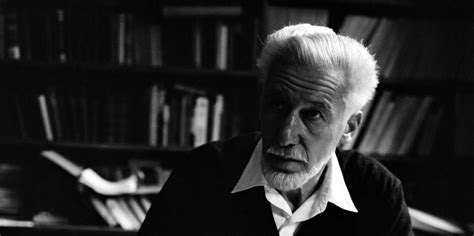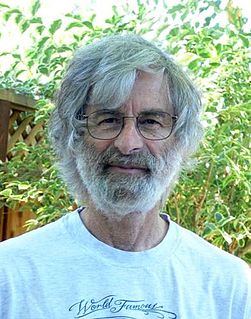A Quote by Ayn Rand
There are two principles on which all men of intellectual integrity and good will can agree, as a 'basic minimum,' as a precondition of any discussion, co-operation or movement toward an intellectual Renaissance. . . . They are not axioms, but until a man has proved them to himself and has accepted them, he is not fit for an intellectual discussion. These two principles are: a. that emotions are not tools of cognition; b. that no man has the right to initiate the use of physical force against others.
Quote Topics
Related Quotes
No man may initiate the use of physical force against others. No man-or group or society or government-has the right to assume the role of a criminal and initiate the use of physical compulsion against any man. Men have the right to use physical force only in retaliation and only against those who initiate its use. The ethical principle involved is simple and clear-cut: it is the difference between murder and self-defense.
Insofar as theology is an attempt to define and clarify intellectual positions, it is apt to lead to discussion, to differences of opinion, even to controversy, and hence to be divisive. And this has had a strong tendency to dampen serious discussion of theological issues in most groups, and hence to strengthen the general anti-intellectual bias.
So long as men desire to live together, no man may initiate the use of physical force against others. . . . When a man attempts to deal with me by force, I answer him by force. It is only as retaliation that force may be used and only against the man who starts its use. No, I do not share his evil or sink to his concept of morality: I merely grant him his choice, destruction, the only destruction he had the right to choose: his own.
It is sometimes asserted that a surgical operation is or should be a work of art ... fit to rank with those of the painter or sculptor. ... That proposition does not admit of discussion. It is a product of the intellectual innocence which I think we surgeons may fairly claim to possess, and which is happily not inconsistent with a quite adequate worldly wisdom.
The intellectual is not defined by professional group and type of occupation. Nor are good upbringing and a good family enough in themselves to produce an intellectual. An intellectual is a person whose interest in and preoccupation with the spiritual side of life are insistent and constant and not forced by external circumstances, even flying in the face of them. An intellectual is a person whose thought is nonimitative.
The discussions of every age are filled with the issues on which its leading schools of thought differ. But the general intellectual atmosphere of the time is always determined by the views on which the opposing schools agree. They become the unspoken presuppositions of all thought, and common and unquestioningly accepted foundations on which all discussion proceeds.
There is a race between the increasing complexity of the systems we build and our ability to develop intellectual tools for understanding their complexity. If the race is won by our tools, then systems will eventually become easier to use and more reliable. If not, they will continue to become harder to use and less reliable for all but a relatively small set of common tasks. Given how hard thinking is, if those intellectual tools are to succeed, they will have to substitute calculation for thought.
The intellectual attainments of a man who thinks for himself resemble a fine painting, where the light and shade are correct, the tone sustained, the colour perfectly harmonised; it is true to life. On the other hand, the intellectual attainments of the mere man of learning are like a large palette, full of all sorts of colours, which at most are systematically arranged, but devoid of harmony, connection and meaning.
The objections to religion are of two sorts - intellectual and moral. The intellectual objection is that there is no reason to suppose any religion true; the moral objection is that religious precepts date from a time when men were more cruel than they are and therefore tend to perpetuate inhumanities which the moral conscience of the age would otherwise outgrow.
The necessary consequence of man's right to life is his right to self-defense. In a civilized society, force may be used only in retaliation and only against those who initiate its use. All the reasons which make the initiation of physical force an evil, make the retaliatory use of physical force a moral imperative. If some "pacifist" society renounced the retaliatory use of force, it would be left helplessly at the mercy of the first thug who decided to be immoral. Such a society would achieve the opposite of its intention: instead of abolishing evil, it would encourage and reward it.
There are for man only two principles available for a mental grasp of reality, namely, those of teleology and causality. What cannot be brought under either of these categories is absolutely hidden to the human mind. An event not open to an interpretation by one of these two principles is for man inconceivable and mysterious. Change can be conceived as the outcome either of the operation of mechanistic causality or of purposeful behavior; for the human mind there is no third way available.


































